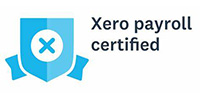The question of whether to run a business as a limited company is a major decision. If you’re wondering if you should set up a company rather than operate on a sole trade basis then this briefing outlines the key points to consider.
The choice of an appropriate structure for your business — be it sole trader, partnership or limited company — will have immediate consequences. There may be tax savings involved in running a company, and this is certainly an important factor. But the calculations are complex. They depend on the level of profit made; the proportion of profit retained in the business; and the type of business. Attention to the remuneration package, business structure and personal circumstances of the director-shareholders is also needed.
Going forwards, incorporation can give you access to tax-advantaged investment opportunities, such as the Enterprise Investment Scheme. You may also be able to obtain tax incentives on research and development.
But incorporation is not just about tax. It also brings your business within the scope of many regulatory systems. You will have to make returns to Companies House, and set up a PAYE scheme to pay director-shareholders. Such ‘red tape’ may involve you in compliance costs, and making a balanced decision means taking all these factors into account.
Thinking about tax
Income tax v corporation tax
In the first instance, it is the company, not the director-shareholder, that pays tax on profits. Thanks to the government’s aim of creating the lowest corporation tax regime in the G20 block of nations, rates here are very low — and falling.
Corporation tax is currently 19%, regardless of the level of company profit. For the financial year beginning 1 April 2020, it falls to 17%.
Unless profit is very low, the tax due on profits made within a company will be less than that paid on the same profit figure by a sole trader or partner. But there can be further tax, depending on how much profit is distributed to director-shareholders.
How best to extract profits?
You can use a variety of strategies to extract profits. Many director-shareholders take a basic salary from the company, and then extract profits by way of dividends.
Salary and National Insurance Contributions (NICs)
As a director-shareholder, you are an employee of the company. Any form of cash remuneration, such as a salary or bonus, or taxable benefit (medical insurance, car etc), is taxed as employment income and liable to income tax in the normal way. Employment income attracts Class 1 NICs, for which both the director-shareholder (the employee) and company (the employer) may be liable. In 2018/19, Class 1 NICs are:
- 12% for the individual on any income over £162 a week (£8,424 per annum) up to a limit of £892 a week (£46,350 per annum), and then 2% on any excess
- 8% for the employer on earnings over £162 a week (£8,424 per annum), with no upper limit.
Though employees are not liable to NICs on benefits, Class 1A NICs are generally due from the employer at 13.8%.
Director-shareholders have considerable flexibility here. Often the most tax efficient strategy is to take a salary pitched between the Lower Earnings Limit for NICs (£116 per week for 2018/19) and the NIC primary threshold (£162 per week for 2018/19). This can help retain state pension entitlement, but take the payment of NICs out of the equation. The balance of post-tax profits can then be taken as dividends. Also on the positive side, salary is tax deductible for corporation tax purposes.
Dividends
Dividends received by an individual have their own distinct tax treatment. They are not liable to NICs. Tax is paid on dividends at:
- 5% for basic rate taxpayers
- 5% for higher rate taxpayers
- 1% for additional rate taxpayers.
Combined with the Dividend Allowance, which taxes the first £2,000 of dividends received in a tax year at 0% (with effect from 6 April 2018), these rates can produce a favourable outcome for the taxpayer. But remember that dividends are paid out of taxed profits, so corporation tax also needs to be factored in.
Pension provision
It should be possible for your company to make contributions into a registered pension scheme (subject to certain limits) for director-shareholders, without this being treated as an assessable benefit. Expenditure must be paid wholly and exclusively for the purposes of the trade in order to be deductible for the company. This contrasts with the position for sole traders and partners, where pension contributions would be considered a private expense and tax relief, if due, given to the sole trader or partner.
What savings could there be?
Here we consider the position for a husband and wife partnership in 2018/19.
| Profits: | £50,000 | £100,000 | £200,000 |
| Tax and NI payable: | £ | £ | £ |
| As partners | 8,550 | 23,998 | 65,998 |
| As a company | 7,499 | 20,037 | 63,237 |
| Potential saving | 1,051 | 3,961 | 2,761 |
These figures assume that the couple share profits equally, have no other sources of income, and that both take a salary of £8,424 from the company, with the balance (after corporation tax) paid as a dividend.
Leaving profits in the company
Where director-shareholders do not need to extract all the profits from the company to meet current expenditure, profits can be left in the company. This opens up further planning possibilities. It may be possible for example, to choose to extract in a later year, when income tax rates may be lower. It may also be possible to extract profits by means of a capital gain on a sale of shares or on the liquidation of the company in the future. Particular care is needed in what is a complex area, and consideration must also be given to HMRC’s targeted anti-avoidance rules.
When retaining profits in your company, cut off points to consider would be where income can be kept below £100,000, this having the advantage of keeping personal allowances: and £150,000, which means an individual can stay out of additional rate tax.
In tax terms, trading as a limited company can often be advantageous, but it should be stressed that it is not a one-size-fits-all solution. Working out what would be best in your circumstances means making calculations unique to you, and we would be delighted to be of service in this regard.
Incorporation: advantages and responsibilities
There are also non-tax factors which can encourage business owners to think about incorporation. Key among these is obtaining limited liability. Where shares are fully paid, you cannot normally be required to invest any more in the company. However, banks may often require personal guarantees from directors for borrowings. The advantage of limited liability thus generally applies in respect of liabilities to other creditors.
Incorporation can bestow a degree of reputational credibility which can be important when selecting an appropriate business structure. A company enjoys legal continuity, being a legal entity separate from its shareholders. It can own property, sue and be sued. Transfer of ownership of a limited company can be more readily effected than with businesses differently structured. In terms of borrowing, a company can also have advantages. Normally a bank is able to take extra security by means of a ‘floating charge’ over the assets of the company, which will increase the extent to which monies may be borrowed against the assets of the business. These are all points to weigh up when deciding on the most appropriate structure for your business.
Administration and publicity
Incorporation means regulation — and regulation is almost always costly. Annual compliance costs for your company for instance, in terms of administration and accounting, can be higher than costs for a sole trader or partnership. Annual accounts need to be prepared in a format dictated by the Companies Act, and in certain circumstances, the accounts will need to be audited by a registered auditor.
The degree of transparency required of a company makes it very different from operating as a sole trader or partnership. Details of directors and shareholders are filed on the public register held by the Registrar of Companies, for example.
Other responsibilities
- Company directors have certain statutory responsibilities, and as such, may be at risk of criminal or civil penalty proceedings for non compliance.
- All employers have pensions responsibilities under auto-enrolment. Directors’ earnings are potentially within this regime.
- IR35 rules: ‘false self-employment’ is an area facing considerable government scrutiny — namely those cases in which an individual is to all intents and purposes an employee, but is treated as self-employed. The IR35 regime is part of this clamp down, and is designed to prevent avoidance of tax and NICs through the use of personal service companies (PSCs). Managed Service Companies, sometimes known as ‘composite companies’ or ‘managed PSCs,’ also come within these rules. The rules are complex and subject to ongoing government intervention. Changes have been made to the IR35 rules in relation to engagements in the public sector — ‘off-payroll working in the public sector.’ Consultation is due this year on whether the public sector reforms should be extended to the private sector. Should IR35 potentially apply to you, we would be pleased to help with the necessary record keeping and other calculations.
- Persons with significant control: almost all companies are required to keep a register of people with ‘significant control.’ This is intended to increase transparency regarding control and ownership of UK companies, but also adds to the administrative burden on companies.
How we can help
We have only been able to outline some key issues involved here. Please do not hesitate to contact us on 0141 848 7474 for further advice on forming or running a company.










